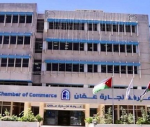You are here
Serious, inclusive, Palestinian strategy needed
Apr 01,2015 - Last updated at Apr 01,2015
The state of Palestine officially became a member of the International Criminal Court (ICC) on April 1, allowing it to sue Israel for crimes of war.
But the ability to sue is one thing and an actual conviction another. For the endeavour to succeed there is need of a totally new strategy, one that will require an ingredient that has been missing for years: national unity.
While any new Palestinian strategy must focus on the ultimate goal of ending the occupation, it is important not to continue using action at ICC as a bargaining chip.
In the past, action in this sense was often deferred in return for shameful short-term gains.
The Palestinian team preparing the case against Israel reportedly has two different areas in which to sue Israel for crimes of war.
It can charge Israelis for crimes of war during last summer’s war on Gaza in which 2,200 Palestinians were killed, thousands were injured and buildings, including hospitals, schools and houses, were demolished.
Palestinians can also begin proceedings against Israel for its continued war crimes in the occupied territories, namely the colonial settlement activities.
While both cases will have merit, many jurists believe that focusing on the settlement issue is a much stronger case.
According to international humanitarian law, one can only charge political or military officials, or soldiers with war crimes if their country did not carry out any serious investigation of the specific acts.
While violent Israeli acts were superficially investigated, international human rights groups concluded that these investigations of crimes against Palestinians are not serious and do not meet international standards.
The fact that Israelis did investigate deadly violence makes a case against them weaker.
Furthermore a case against Israeli violence in Gaza will certainly force an investigation of the Palestinian violence — using unsophisticated rockets — which can be introduced to weaken the Palestinian case even though the numbers of Israelis killed or injured by Palestinian rockets dwarfs compared to that of Palestinians killed by Israeli violence.
A much stronger case is the one against settlements.
The Fourth Geneva Convention, which details how a prolonged occupation should be managed, makes it absolutely clear that an occupying power is not allowed to bring its own population into the occupied territories.
The applicability of the Geneva IV Convention has been settled in the International Court of Justice ruling about the illegality of the Israeli security wall built on Palestinian lands.
The case about settlements is also much more powerful because of its continuity.
This is not a onetime act, but one of long duration. It is not being carried for security reasons, but for purely political and ideological reasons that cannot be denied or defended.
The fact that settlement activities and the protection of settlements is carried out publicly and unabashedly by the Israeli government makes the international legal effort against settlements an open and shut case.
Of course, the bigger problem in regards to this case is the political aspect, both within the court and outside it.
While international jurists will claim that the ICC is independent and immune from political pressure, the fact is that for the most part, all the cases that have reached advanced levels in the court’s proceedings had political consensus behind them.
For many around the world, while the ICC mandate is international, most of the cases being heard had come out of Africa or had international clout behind them, such as Bosnia and the Hariri assassination.
Big political pressure will be placed on the Palestinian presidency. Pressure, financial and other, will be placed on the Palestinians to delay or even forget the ICC in return for trying again the failed direct negotiations route.
In order to be able to successfully reject these pressures, Palestinians need to be united.
Serious effort must be made to forget past problems and present a unified front in the upcoming case.
This means that the Fateh-Hamas dispute that has distracted Palestinian attention for years must be immediately resolved.
Dates for parliamentary and presidential elections, as well as for the Palestine National Council, must be declared.
All parties must commit to make the elections work and must accept the results.
Regardless of the elections, a sensible, inclusive, strategy must be agreed upon so that Palestinians of all shades of opinion, both inside and outside the occupied territories, can be united in the pursuit of ending the occupation.
No issue should preclude unity.












